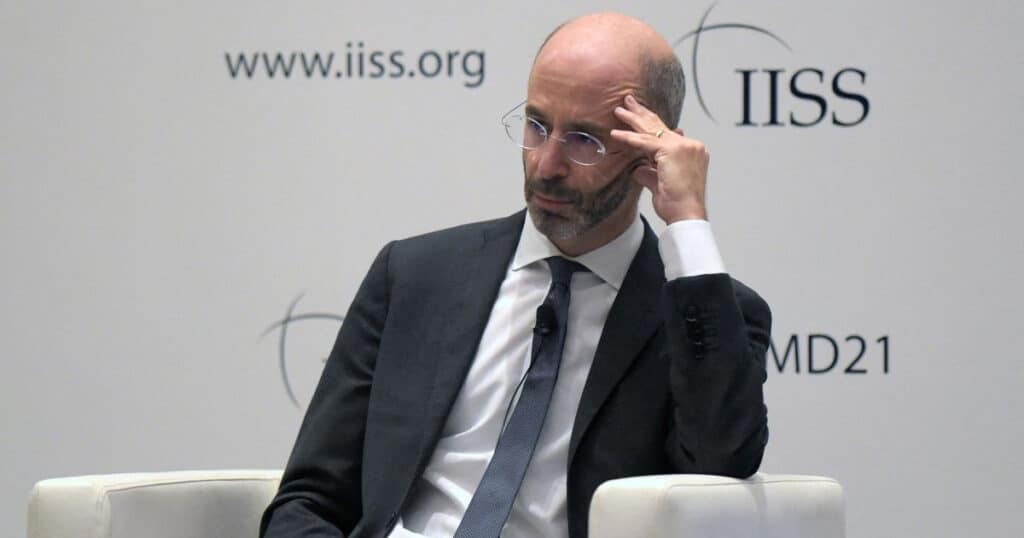
Rob Malley’s Legacy of Failure: Undermining American Interests in the Middle East
The recent news of Robert Malley’s suspension as the Special Envoy to Iran for allegedly mishandling classified documents introduces an opportunity to evaluate his 29-month tenure. Scrutiny of his term quickly reveals an abject failure to advance American interests. In an aggressive pursuit of a new nuclear deal with Iran, Malley compromised America’s standing across the Middle East.
Malley had a singular objective upon appointment: revitalization of the 2015 Joint Comprehensive Plan of Action (JCPOA). For this endeavor, his selection by President Biden made sense: Malley was a pivotal figure in the negotiations that led to the formalization of the JCPOA during President Barack Obama’s administration. His service as Special Envoy witnessed multiple pauses, restarts, and several moments when a deal seemed imminent. Yet, the passage of two and a half years unequivocally demonstrates the failure of Malley’s mission: as a practical matter, the original strictures of the JCPOA – the dismantling of Iran’s nuclear program and the opening of its facilities to international inspection – are obsolete, never to be reinstated.
Meanwhile, President Biden’s stated objectives within a renegotiated JCPOA – the prevention of Tehran from obtaining nuclear armament and a reining in of Iran’s destabilizing support to proxy forces in the region – are getting further away. Iran’s expedited uranium enrichment efforts significantly supplemented the nation’s nuclear stockpile. The Islamic Republic appears weeks away from amassing adequate fissile material to construct a nuclear weapon. Iran continues to support terror groups in the Middle East and Levant. Concurrently, the lenient implementation of sanctions by the United States has permitted Iran to notably enhance its oil exports, predominantly to China, and bolster its trade of military drones with Russia amidst its ongoing invasion of Ukraine. Further, sensing and seizing American weakness in the Middle East, Beijing complements its military and economic footholds in the region with diplomatic influence, brokering a stunning breakthrough agreement to restore relations between Riyadh and Tehran.
As Special Envoy, Malley’s pursuit of Biden’s dream of reentry into JCPOA sometimes reeked of desperation. Under Malley’s watch, the United States ignored partners, emboldened enemies, and pushed away opportunities to reset regional alliances. Negotiations with Iran over the removal of sanctions strained American relations with Israel and Arab Gulf states while boosting Iran’s regional influence.
American standing has collapsed such that supreme leader Ali Khamenei now imposes intolerable conditions for a new agreement: Iran seeks to retain its nuclear facilities whilst simultaneously ending sanctions. Meanwhile, Iran refuses to fully commit to rejoining the JCPOA. Khamenei surely knows his demands are impossible to accept; he likely sees the administration negotiating from a position of weakness, looking to push the Biden administration into a corner and continue to draw out negotiations.
The process and the softening of stance often reflected Malley’s more progressive foreign policy philosophy, which is critical of traditional alliances and supportive of unconventional approaches. No one observing this should be surprised; this is consistent with his decades-long approach to the region.
That’s not to say that his method is without merit. Throughout his public service, Rob Malley has consistently advocated for bold approaches that buck conventional wisdom and has never shied away from controversy. Rob Malley has consistently refused to be a servant to conventional thinking, even while serving in a series of administrations that adhered to a conventional view of the Middle East. His unorthodoxy is commendable.
Under the Obama and Biden administrations, he dealt directly with the region’s worst actors, such as leaders from the IRGC and the PLO, operating under the philosophy that these vile men hold power and therefore can serve to underpin regional stability. It’s worth recalling his 2008 forced resignation from the Obama presidential campaign after news surfaced that he’d met repeatedly with Hamas.
However, conditions across the globe have changed. Malley’s philosophy has not. That view is now untenable, particularly given Iran’s emboldened position and the Biden administration’s emphasis away from the Middle East and toward the Indo-Pacific. This approach, made clear in an October 2019 Foreign Affairs essay, includes the perspective that long U.S. partners in the region, particularly Saudi Arabia and Israel, serve as a primary cause of instability. This thinking is misguided: the Saudis stand as a hedge against Iran’s most destructive behavior and serve as a force for regional security and stability.
In this same essay, Malley went beyond his long-held view that the United States should pursue diplomacy with Iran, suggesting that we should embrace Tehran as a partner for stability. This idea ignores Iran’s history of aggressive behavior, sponsorship of terrorism, destabilizing actions, and disregard for international norms.
The application of this philosophy wrought blatant disregard for key American partners in the Middle East. Traditional allies like Israel and Saudi Arabia were marginalized and frustrated by his apparent indifference to their concerns. Instead of fostering trust and cooperation, Malley’s actions alienated these crucial partners, weakening the United States’ standing in the region and undermining the potential for meaningful progress.
Throughout, Malley was under fire for his soft approach in dealing with the regime amidst nationwide protests in Iran against the regime’s abuse of women. Last October, he embarrassed the United States when he decided to speak for the millions of Iranian protestors, claiming they sought to have Iran’s leaders “respect their human rights and dignity.” The protestors sought the overthrow of these leaders. At the time of Malley’s statement, these leaders – with whom Malley sought diplomacy and dealmaking – were brutalizing the protestors.
Malley’s fondness for Iranian hardliners was often hard to understand. Instead of approaching Tehran with an appropriate measure of skepticism and pressure, Malley seemed more interested in appeasement. This approach not only emboldened a regime known for its human rights abuses and support of terrorism but also failed to achieve any tangible concessions that could ensure the safety and security of the United States and its allies.
Ultimately, the United States gained nothing with any of this. Despite his public optimism and promises of diplomatic breakthroughs, Malley’s tenure achieved little more than stalled negotiations and elusive hopes. The pivotal issues plaguing the Middle East, including the Iranian nuclear threat, regional stability, and the threat of proxy forces, were never resolved.
The challenges facing the Middle East are complex and multifaceted. With the recent reduction of American forces and assets from the region, addressing these challenges requires the support of enduring partners. Unfortunately, Malley’s blind pursuit of a new nuclear deal pushed some of those partners further away. It is now up to the next administration to rectify the damage caused by his legacy of failure, to rebuild relationships with critical allies, and to pursue a more effective and robust approach to the region’s challenges. The Middle East deserves an American policy prioritizing security, stability, and protecting American interests.
Colonel Joe Buccino (U.S. Army, ret.) served as U.S. Central Command Communications Director from 2021 to July 2023. His book “Burn the Village to Save It,” about the 1968 Tet Offensive, is due out in the fall of 2024.
This article was originally published by RealClearDefense and made available via RealClearWire.



